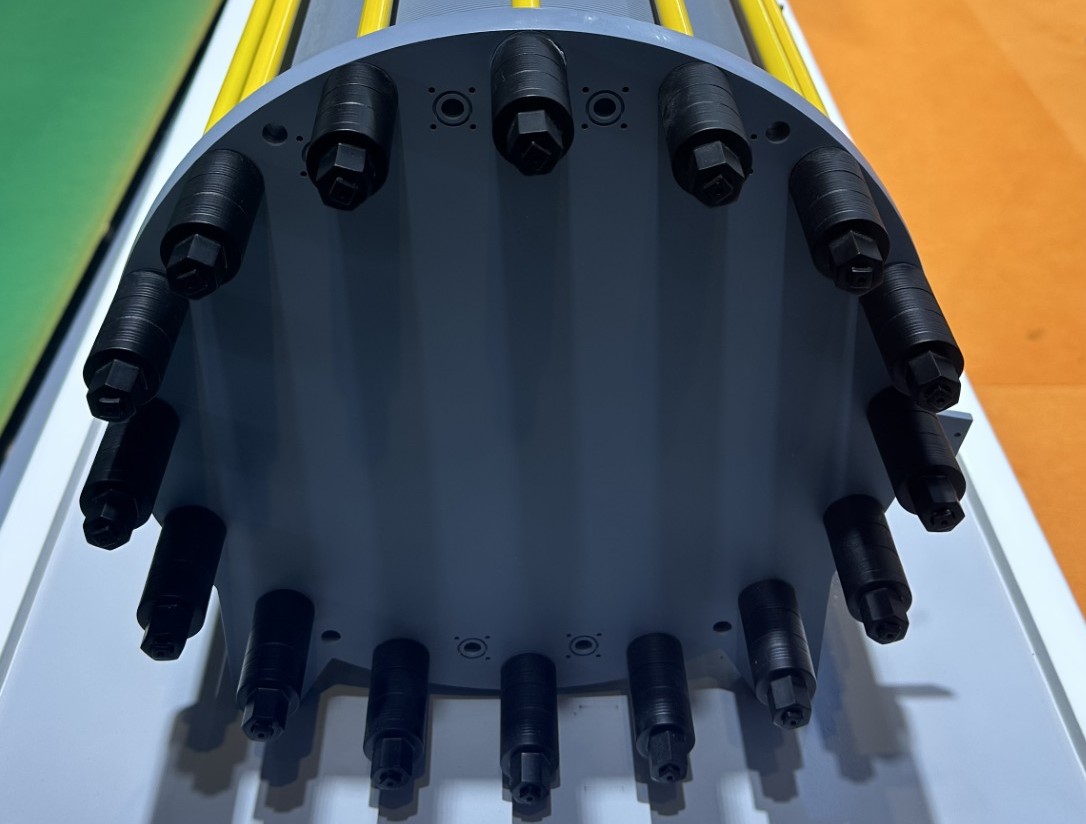Poland has released a strategic document outlining its main objectives for the development of hydrogen, by creating incentives in the energy, transport, and industry sectors. In the power and heating sector, the Polish government plans to support research and development over the next five years. In the transport sector, the government aims to have at least 32 hydrogen filling stations set up by 2025 and up to 1,000 hydrogen buses by 2030. The country wants to establish at least five hydrogen valleys by 2030 and develop factories for electrolyzers, fuel cells, hydrogen storage tanks, and hydrogen-powered vehicles. Currently, Poland is the third-largest hydrogen producer in the European Union.
Tyczka Hydrogen said that an incident two weeks ago at its filling station in Augsburg, Germany, was caused by a damaged compressor from Maximator Hydrogen. “The tie rod, which is part of the MAX Compression System of the plant manufacturer Maximator Hydrogen, ensures that all parts involved in the compressor are firmly held together. When the the rod broke, hydrogen immediately escaped from the compressor at high pressure, which then ignited in a deflagration,” said Tyczka Hydrogen. “Three other hydrogen filling stations supplied by Maximator Hydrogen, which contain a component from the same batch, are also currently being inspected as a precautionary measure.”
Vattenfall said that it has paused its collaboration with Shell on the HySkies electrofuel project. Vattenfall added that it is actively seeking new partners to explore potential industry decarbonization initiatives in the Forsmark region of Sweden. According to Vattenfall, the issue with Shell stems from disagreements over the project's timelines for aviation electrofuels. “Both companies have requested for a termination of the grant agreement for financial support via the EU Innovation Fund, considering it is infeasible for the project to succeed within the framework of that agreement and aiming to free up funds for others to use in their ambitions to decarbonize,” said Vattenfall.
Plug Power has completed the deployment of 13 hydrogen refueling stations (HRS) across Europe in the last two years, according to the New York-based company. “All systems are currently in the commissioning phase, with many already operational,” said the company. “The remaining systems are expected to be fully operational by this summer.” It said the projects span locations in the United Kingdom, France, Germany, Spain, and the Netherlands. They support Plug Power’s European material handling customer base, which includes Amazon, Stef, ASDA, Lidl, and others. Additionally, these stations serve Plug Power’s facilities and HYVIA locations, a joint venture between Plug and Renault aimed at developing hydrogen fuel cell electric commercial vehicles. The largest of these sites is expected to consume close to half a ton of hydrogen per day.
Fertiglobe has secured a 20-year offtake agreement with Hintco in Germany for green ammonia from the Scatec-led hydrogen project in Egypt. “The H2Global award represents a key milestone for the Egypt Green Hydrogen project in Ain Sokhna,” said Scatec CEO Terje Pilskog. “This demonstrates the competitiveness of green hydrogen and ammonia production in Egypt.” In 2021, Scatec and its partners agreed to develop, build, own, and operate a 100 MW electrolyzer facility to produce renewable hydrogen. This hydrogen will serve as feedstock for renewable ammonia production at Fertiglobe’s existing ammonia plant. The project will be powered by approximately 270 MW of solar and wind capacity, aiming to deliver around 13,000 tons of renewable hydrogen and up to 74,000 tons of renewable ammonia per year.
This content is protected by copyright and may not be reused. If you want to cooperate with us and would like to reuse some of our content, please contact: editors@pv-magazine.com.



By submitting this form you agree to pv magazine using your data for the purposes of publishing your comment.
Your personal data will only be disclosed or otherwise transmitted to third parties for the purposes of spam filtering or if this is necessary for technical maintenance of the website. Any other transfer to third parties will not take place unless this is justified on the basis of applicable data protection regulations or if pv magazine is legally obliged to do so.
You may revoke this consent at any time with effect for the future, in which case your personal data will be deleted immediately. Otherwise, your data will be deleted if pv magazine has processed your request or the purpose of data storage is fulfilled.
Further information on data privacy can be found in our Data Protection Policy.